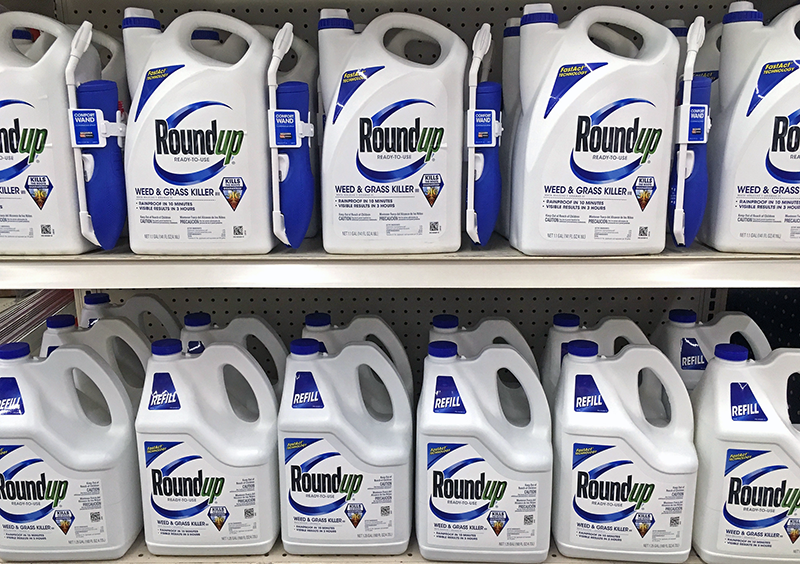Recently, there has been a controversy over whether glyphosate, an ingredient in the pesticide Roundup, causes cancer. More than 11,000 people have sued the company Bayer, which makes Roundup, as reported in the New York Times. In one of these lawsuits, a jury found that Roundup was a “substantial factor” in one person’s cancer.
So does Roundup cause cancer? The answer is somewhat complicated.
Background
In 2015, the International Agency for Research on Cancer (IARC), which is part of the World Health Organization (WHO), declared glyphosate to be probably carcinogenic, according to reporting in the New York Times.
The E.P.A, however, said that it “continues to find that there are no risks to public health when glyphosate is used in accordance with its current label and that glyphosate is not a carcinogen.” Likewise the European Food Safety Authority (EFSA) said that “glyphosate is unlikely to be carcinogenic to humans.”
So some agencies believe the chemical is carcinogenic but others don’t. Why the disagreement? According to toxicologist David Eastman, as reported on NPR.org, one explanation is that, “IARC just looks at whether glyphosate can cause cancer; regulators, on the other hand, have to decide whether it actually will, considering how much of it people are exposed to.”
So the organizations are looking at different things, whether glyphosate can cause cancer versus whether it will. As the preamble to IARC's monograph explains, the organization looks at cancer hazard, not cancer risk.
The difference, according to the preamble, is that a "cancer hazard is an agent that is capable of causing cancer, whereas a cancer risk is an estimate of the probability that cancer will occur given some level of exposure to a cancer hazard." IARC's evaluation of glyphosate means that it has the potential to cause cancer, not that it actually will at the levels people are exposed to it.
Another possible reason is potential involvement from Bayer in the E.P.A’s process. According to the New York Times, “Documents unsealed in 2017... suggested that Monsanto [owned by Bayer] had ghostwritten research that was later attributed to academics. The documents indicated that a senior official at the E.P.A. had worked to quash a federal review of glyphosate.”
Additionally, “The documents also revealed that there was some disagreement within the E.P.A. over its own risk assessment.”
The EFSA, however, said that Bayer did not influence their decision. According to them, “there are no grounds to suggest that industry improperly influenced the EU assessment of glyphosate…”
Is Glyphosate Carcinogenic?
Bayer said that Glyphosate isn’t carcinogenic and can be used safely, but a study by researchers from the University of Washington disagreed, finding that the chemical increases someone’s cancer risk by 41%, according to CNN. The study was limited, however due to lack of data.
A meeting between the WHO and another organization found that “glyphosate is unlikely to pose a carcinogenic risk to humans from exposure through the diet.” Although, they also said that, “there is some evidence of a positive association between glyphosate exposure and risk of NHL [a type of cancer].”
According to the E.P.A. “Some individual countries (e.g., France, Sweden) have been moving to ban glyphosate based on the IARC decision, while other countries (e.g., Japan, Canada) have continued to support their conclusion that glyphosate is unlikely to pose a carcinogenic risk to humans.”
So does glyphosate cause cancer? Somehow, despite multiple studies, and almost 19 billion pounds of the chemical being used worldwide over the past 45 years, the answer is still unclear.
While it’s still unclear whether glyphosate is definitely a carcinogenic, there are many other substances that are known to be harmful. If you believe that a substance you were exposed to contributed to your cancer, including glyphosate, give Bart Durham Injury Law a call 24/7 to discuss your case for free.



